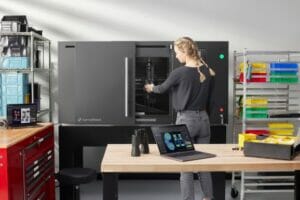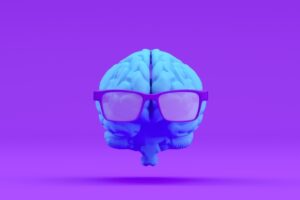Google Cloud Next is taking place this week virtually. While there are typically many announcements made at their annual event, one of the lesser highlighted announcements this time around is for Google’s Intelligent Product Essentials.
With Intelligent Product Essentials, Google essentially provides all the key components to deploy distributed IoT and edge computing solutions. Components are included for data ingestion, connectivity both for data acquisition and IoT device OS/security updates, integration of acquired data into a database suitable for the type of data generated (e.g., spatial data, textual data, etc.), central and/or edge cloud application processing, AI/ML analysis, enabling modifications/additions to the processes through open APIs, and access to work across a multi-cloud infrastructure (few companies work with a single cloud infrastructure).
It is less of a product and more of a template or workbench, tying a number of connectivity and integration components together to give companies a head start on a complete IoT and edge deployed solution. Google offers some direct engagement with its customers but relies on partnering with specialized systems integrators (a list of which will be expanded over time) to complete a customer’s solution. The SI would typically focus on deploying IoT components and sensors that need to be managed while also enabling the resulting data to be processed for the insights on required actions and/or user and device interactions.
In Google’s announcement of the offering, it focuses on use cases related to consumer products — such as smart ovens and smart bicycles. But I expect more enterprises and organizations to be interested in how Intelligent Product Essentials can help manufacturers create modern environments for machine monitoring, maintenance, and failure analysis, providing updateable and secure “things,” and how it can help organizations deploy complex IoT solutions for smart-cities infrastructure, healthcare monitoring, remote inspections, etc. Clearly, the need for these IoT enabled and edge-powered solutions continues to grow.
Google doesn’t charge for this product per se; rather it gets revenues for the components customers select in the GCP products that are foundational to this solution set. Built on a Kubernetes microservices architecture, its uses DataFlow to move data into the cloud environment and various potential databases of the customer’s choosing (e.g., Firebase), which creates a data warehouse that can be analyzed by Google AI/ML tools (e.g., Vertex AI, or Vertex at the edge), and finally manage the various IoT components remotely with Google management tools. Interestingly, Google does not require that the IoT devices run its Android OS, as it realizes many IoT devices run an RTOS or some other simple OS.
Such a foundational platform is an attractive way to create and deploy industrial devices that often suffer from poor user experience and manageability — from trains to excavators to industrial machinery to medical monitors, etc. Many organizations can benefit from such capability, but many also lack the resources (both monetary and skilled staff) to implement a modern data driven environment to improve their operations. Any reference design that brings together the major components into an integrated approach is highly beneficial.
While this offering from Google may not be an option for companies that require a completely optimized and customized solution and that can take many months or years to create, it offers a simplified way to speed up time-to-deployment for many companies, which means real revenue enhancement, and/or a reduced reliance on scarce resources. Indeed, while there is a high degree of variability involved based on a user organization’s particular requirements, I estimate that a template-structured solution like this can often achieve a 25%-40% reduction in efforts involved, resources needed, and/or time-to-deployment.
GCP as a cloud solution is competitive, and Google has some of the better analytics and AI capabilities available to provide real data insights. But as the number three public cloud provider for enterprises, Google has to try harder. Both AWS and Microsoft have their own IoT and edge computing initiatives and have made some significant inroads, particularly in key industries like automotive, smart cities, and health care. But the market for edge and IoT related solutions is still nascent, so Google entering somewhat later with a GCP offering really is no major setback. And Google does have a major opportunity to convince potential customers that its analytics and AI capability, honed over years for its own product needs, is a major advantage. But Google is still playing catch-up, given the head start and better known products from its competitors.
Bottom Line: The potential benefits in operational efficiency and safety attributed to IoT, edge, and data driven analysis of company operational and business processes are very attractive to many organizations, but they may not have the proper resources to pursue such initiatives. With Google’s Intelligent Product Essentials foundation, many more companies, even smaller scale and/or medium size companies, have a path forward to making IoT and edge a reality. Integrated solution templates like Google’s Intelligent Product Essentials are a great way to achieve advanced IoT and edge enabled solutions with far less friction than completely custom solutions.
Jack Gold is the founder and principal analyst at J.Gold Associates, LLC., an information technology analyst firm based in Northborough, MA., covering the many aspects of business and consumer computing and emerging technologies. Follow him on Twitter @jckgld or LinkedIn at https://www.linkedin.com/in/jckgld.
VentureBeat
VentureBeat’s mission is to be a digital town square for technical decision-makers to gain knowledge about transformative technology and transact. Our site delivers essential information on data technologies and strategies to guide you as you lead your organizations. We invite you to become a member of our community, to access:
- up-to-date information on the subjects of interest to you
- our newsletters
- gated thought-leader content and discounted access to our prized events, such as Transform 2021: Learn More
- networking features, and more
- access
- acquisition
- ADvantage
- AI
- All
- analysis
- analyst
- analytics
- android
- Announcement
- Announcements
- APIs
- Application
- architecture
- around
- automotive
- AWS
- bicycles
- business
- business processes
- care
- cases
- charge
- Cities
- Cloud
- cloud infrastructure
- community
- Companies
- company
- competitors
- computing
- Connectivity
- consumer
- Consumer products
- content
- continues
- Customers
- data
- data warehouse
- Database
- databases
- Design
- Devices
- digital
- driven
- Edge
- edge computing
- efficiency
- Enterprise
- Environment
- essentials
- etc
- Event
- events
- experience
- Failure
- Features
- Finally
- Firm
- Focus
- follow
- Forward
- Foundation
- founder
- Gold
- great
- Grow
- guide
- head
- Health
- Health Care
- healthcare
- High
- Highlighted
- How
- HTTPS
- industrial
- industries
- information
- information technology
- Infrastructure
- insights
- integration
- interest
- involved
- iot
- IoT Device
- iot devices
- IT
- Key
- knowledge
- Kubernetes
- lead
- LEARN
- Line
- List
- LLC
- major
- Making
- management
- Market
- medical
- medium
- Microsoft
- Mission
- monitoring
- months
- move
- offering
- Offers
- open
- Operations
- Opportunity
- Option
- organizations
- Other
- platform
- poor
- Principal
- Product
- Products
- public
- Public cloud
- Reality
- reliance
- Requirements
- Resources
- revenue
- Run
- Safety
- Scale
- sensors
- set
- Simple
- Size
- smart
- Smart Cities
- So
- Solutions
- Spatial
- speed
- square
- start
- Systems
- Technical
- Technologies
- Technology
- time
- trains
- Updates
- VentureBeat
- Warehouse
- week
- Work
- years





